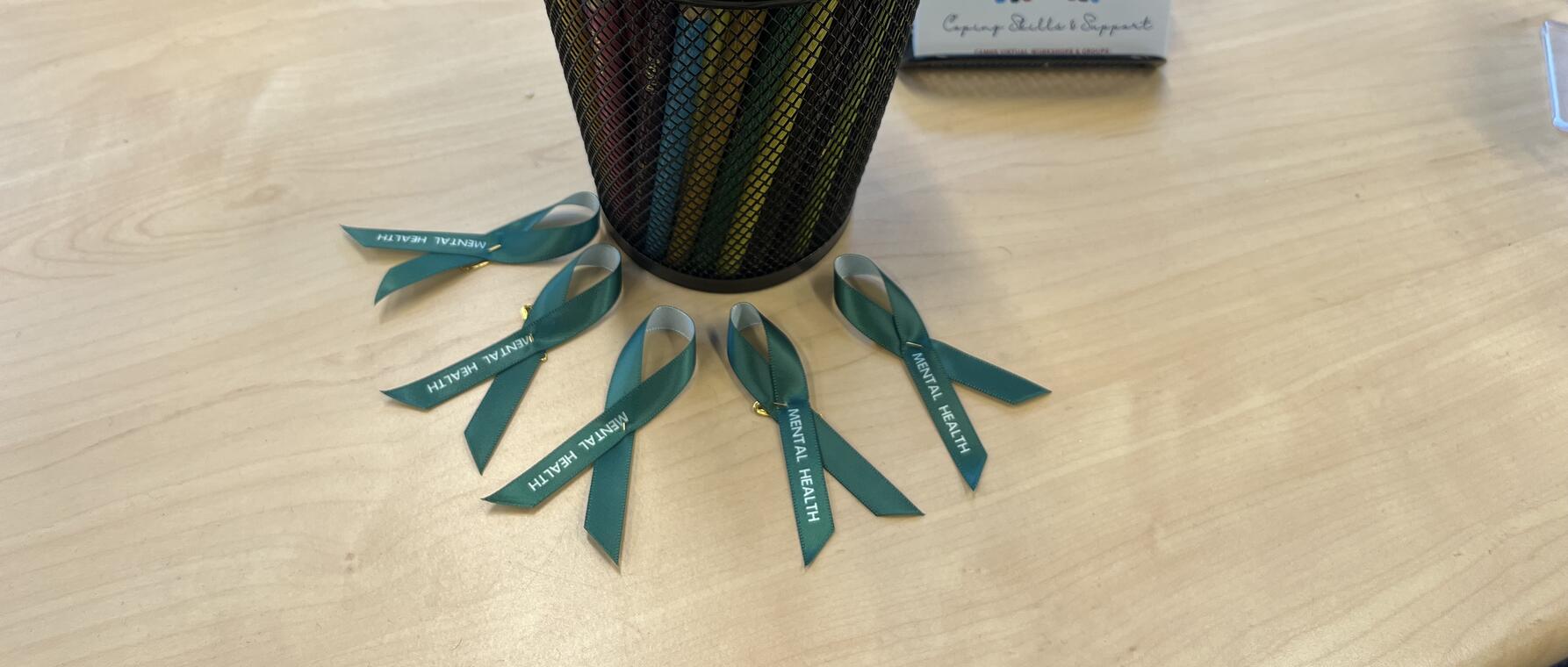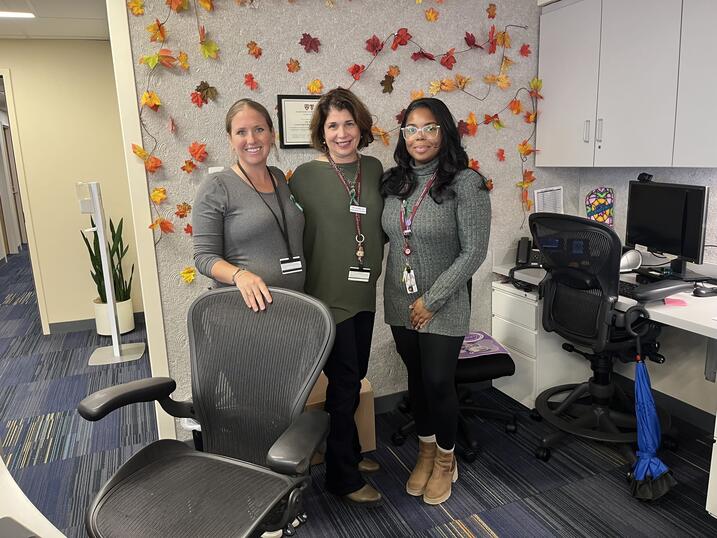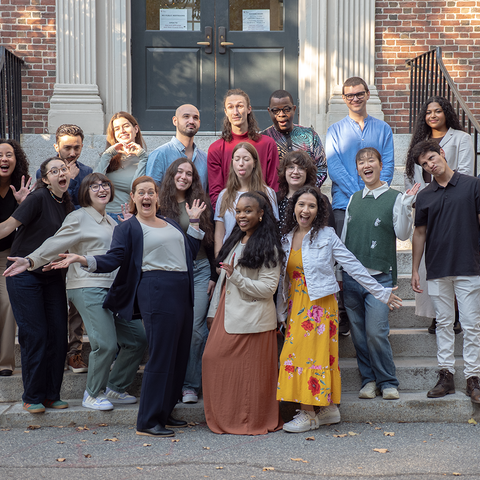Be Well: Listening, Learning, and Flourishing
What the Healthy Minds Survey reveals about student well-being

As we mark World Mental Health Awareness Month, it may come as no surprise that access to mental health care continues to be both a public health challenge and a priority. Demand for services has steadily increased over the years, amplified by the pandemic as well as social and political unrest. In short, there are more people seeking counseling than there are licensed therapists available to provide it. To meet the need, many solutions have emerged—from online therapy platforms to mental health apps.
Here at Counseling and Mental Health Services (CAMHS), we know firsthand the ongoing challenge of meeting students’ needs. Even with a relatively large staff compared to other universities, the demand continues to rise, and we do our best to support each student who comes through our doors. That’s why we were especially encouraged by the results of the Healthy Minds Survey, conducted in spring 2025. The survey assessed students’ perspectives on mental health, belonging, and access to resources, and compared Harvard’s results with national averages. (Read a summary of the national survey’s history, which began in 2007, and view the University’s results in the Harvard Gazette.)
Over 5,900 students completed the 25-minute survey. On average, Harvard students scored higher than their peers around the country on the “flourishing scale” and reported lower rates of anxiety and depression. Many also reported a sense of belonging, with over 80 percent saying they feel part of a community. At the same time, 45 percent noted feelings of isolation, and 68 percent felt that other students know more about what’s happening on campus than they do.

Not surprisingly, impostor syndrome remains a common experience. In my work leading the Overcome Perfectionism through Self-Compassion workshop series, graduate students often express fears of not being smart enough, good enough, or that they somehow ended up at Harvard by mistake. This can lead to self-criticism, procrastination, and failure anxiety. These same themes frequently arise in individual counseling sessions as well.
One particularly heartening finding: 79 percent of Harvard students reported being satisfied with CAMHS services. This suggests that recent efforts to improve access are making a difference. Over the past five years, CAMHS has expanded its Clinical Access Team—licensed clinicians who help students with their first steps in seeking care—shortened wait times, and increased access to online counseling services. The CAMHS Cares 24/7 support line is also available.
“What stands out to me most is the dedication of our CAMHS staff,” reflects Dr. Barbara Lewis, senior director of student mental health services. “Every day, I see clinicians go above and beyond to meet students where they are—with empathy, care, and creativity. The survey results affirm what we hear in our offices: students feel supported, and that means a great deal to us.”
Your Turn: Practicing the Daily Three Ws
A classic positive psychology exercise—and a simple but powerful way to boost mental well-being—is the “Three Ws”: What went well? Try asking yourself each evening:
What went well?
- “I received encouraging feedback from my adviser about a project idea.”
- “Even though my research is taking time, I had a helpful conversation with my lab manager, and I feel on the right track.”
- “I made time for a workout today. I feel stronger and more energized.”
Why did it go well?
- “It feels good to be supported in my ideas, and I was open to suggestions.”
- “I often get frustrated when research feels overwhelming, so talking through my protocol helped me feel validated and hopeful.”
- “I tend to neglect self-care when I’m busy, but being active helped both my mood and my focus. Plus, I was with other people!”
Getting specific about why something went well sparks reflection on what you can influence or control. It also highlights moments of support and even serendipity. Over time, this practice strengthens a positivity bias, helping balance the mind’s natural tendency to focus on stressors.
Seeking Support
“The Healthy Minds Survey reminds us that our efforts are making a difference,” says Lewis. “Students are not only more aware of mental health resources but also more satisfied with the support they receive. While there is always more to do, I’m heartened to see that the work of our team is helping students flourish.”
If you are curious about exploring mental health support, CAMHS offers easy ways to get started:
- Call the CAMHS office or make an appointment through the HUHS Patient Portal.
- Meet with a clinician from the Clinical Access Team to discuss your needs.
- Explore options ranging from short-term counseling at CAMHS, virtual counseling via TimelyCare, long-term therapy in the community, workshops and groups, psychiatric evaluation, or other resources.
For more information, visit the CAMHS website. It’s a great place to begin learning about available services and support.
Get the Latest Updates
Join Our Newsletter
Subscribe to Colloquy Podcast
Simplecast





